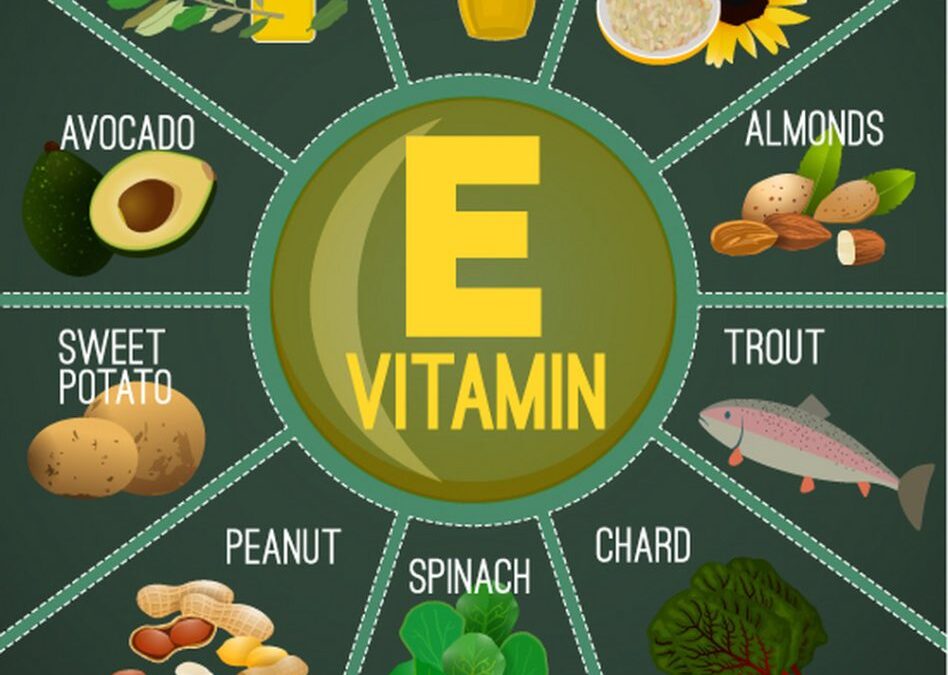Vitamin E is an essential nutrient that is necessary for many of the body’s functions. It is known to help protect cells from damage, keep skin and hair healthy, and even reduce the risk of certain diseases. Vitamin E is found in many foods, including nuts, seeds, and vegetable oils.
What is Vitamin E?
Vitamin E is a fat-soluble vitamin that has multiple health benefits. It is an essential nutrient, meaning that the human body requires it in order to function properly. Vitamin E is an antioxidant, meaning that it protects cells from damage caused by free radicals. It is also important for the health of the skin and eyes, as well as for the proper functioning of the immune system. Vitamin E is found naturally in many foods, including fruits, vegetables, nuts, and seeds. Additionally, it is available in supplement form, and can be taken as a capsule or a liquid.
Health Benefits of Vitamin E
Vitamin E is a powerful antioxidant that can provide many health benefits. It is found naturally in many foods, and is also available in supplement form. Vitamin E helps to protect cells from damage caused by free radicals and may help to reduce the risk of heart or chronic kidney diseases, cancer, and other diseases. It is also important for healthy skin, eyes, and immune system. Vitamin E has been shown to help lower cholesterol levels and reduce inflammation in the body.
Additionally, it is believed to help protect against certain types of cancer, including breast, stomach, and prostate cancer. Vitamin E can also help to improve fertility in both men and women, and may help to reduce the risk of age-related diseases such as Alzheimer’s. It is important to obtain your vitamin E from natural sources, as synthetic forms may not provide the same health benefits. Foods that are rich in vitamin E include wheat germ, almonds, sunflower seeds, olives, spinach, and avocados. Supplements are also available, but should be taken with caution.
Vitamin E Deficiency
Vitamin E deficiency is a rare condition, but it is still important to know the signs of it. A deficiency in Vitamin E can cause symptoms such as weakened immunity, poor vision, impaired coordination, and anemia. It can also lead to an increased risk of developing certain health conditions, such as heart disease, stroke, and certain types of cancer. To prevent a Vitamin E deficiency, it is important to make sure you are getting an adequate amount of Vitamin E in your diet. Good sources of Vitamin E include leafy green vegetables, nuts, seeds, and vegetable oils. Additionally, eating foods fortified with Vitamin E can be beneficial, as well. Taking a Vitamin E supplement can also help to ensure that you are getting enough of this important vitamin.
Nutritional Sources of Vitamin E
Vitamin E is an essential nutrient that can provide numerous health benefits. It is found in a variety of foods and can be taken as a supplement. Nutritional sources of Vitamin E include vegetable oils, nuts, seeds, and green, leafy vegetables. It is also found in some fortified cereals and whole-grain products. Many people also take it as a dietary supplement as it is an antioxidant that helps to protect cells from damage caused by free radicals.
Vegetable oils that are high in Vitamin E include corn, soybean, sunflower, and safflower oil. Nuts and seeds are a great source of Vitamin E, with almonds, peanuts, and hazelnuts being the highest in Vitamin E content. Green, leafy vegetables such as spinach, collard greens, and turnip greens are also good sources. Additionally, some fortified cereals and whole-grain products contain Vitamin E. Taking a supplement is also an option for those who don’t get enough Vitamin E from their diet.
Recommended Intake of Vitamin E
Vitamin E is an essential nutrient that has a plethora of health benefits. It is important to have enough of it in your diet to reap these benefits. The recommended daily intake of Vitamin E is 15 milligrams per day for adults and children over the age of 14. For children aged 9-13, the recommended intake is 11 milligrams, and for children aged 4-8, the recommended intake is 7 milligrams. It is important to note that the body does not produce Vitamin E on its own and must be obtained through dietary sources.
Fortunately, there are many delicious foods that are rich in Vitamin E, such as almonds, wheat germ, sunflower seeds, and leafy green vegetables. Additionally, Vitamin E can be found in many supplements, oils, and other products. By consuming the recommended amount of Vitamin E each day, you can maintain your health and enjoy the many benefits that this essential nutrient has to offer.
Conclusion
Vitamin E has a range of health benefits and is important for optimal health. It plays a role in protecting the body from oxidative damage and inflammation, and helps to boost the immune system. Vitamin E can be obtained through dietary sources such as nuts, oils, and green leafy vegetables. It is also available as a supplement, but it is important to choose a high quality product and to speak with a healthcare professional before taking any supplement. Taking Vitamin E, either through dietary sources or supplements, can help to ensure optimal health and to protect the body from disease.

